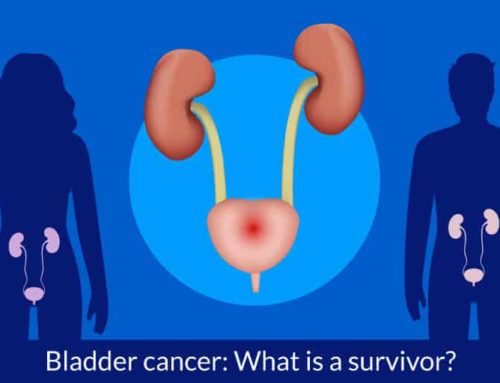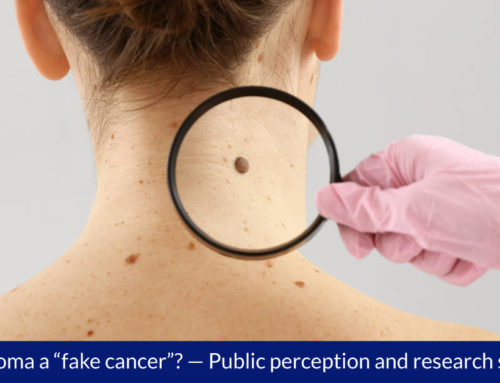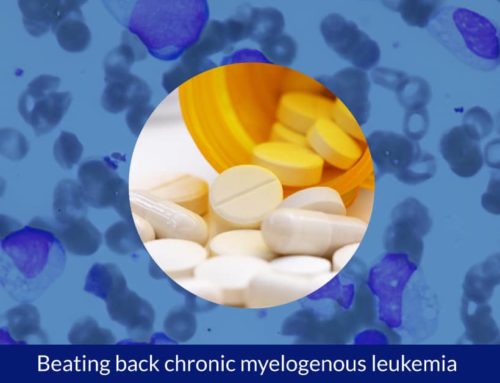Genomic Testing for HR+/HER2- Breast Cancer

Breast cancer (BC) is the most common cancer diagnosed globally, with 330,000 new cases predicted in the United States during 2022. But those numbers don’t account for patients who were previously diagnosed and experience disease recurrence.
Experts are particularly concerned with disease recurrence in patients with hormone receptor-positive/HER2-negative (HR+/HER2-) BC. This subtype of BC accounts for approximately 70% of all new cases. The initial outlook for HR+/HER2- is promising — more than 90% of people get diagnosed in early, non-metastatic stages (stages I-III). But even though experts continue to advance adjuvant therapeutic strategies for these early-stage cases, many patients eventually experience disease recurrence.
Researchers are taking a closer look at current and potential treatments for HR+/HER2- BC. The topic has been the focus of numerous recent studies and was addressed at the 2022 ASCO Annual Meeting. The common thread in these discussions and studies is the importance of personalized, risk-adapted approaches. While numerous factors contribute to a patient’s chance for recurrence, experts are realizing the true value of genomic tests and the automated evaluation of individual risk they offer.
Challenges in Adjuvant Treatment of HR+/HER2- Breast Cancer
The diversity of HR+/HER2- breast cancers has traditionally made it difficult to prescribe standard, yet effective, adjuvant therapy — the treatment wasn’t personalized. Most patients with HR+ BC are candidates for adjuvant endocrine therapy. But before genomic assays, there was no clear way to determine the most appropriate duration of endocrine therapy and whether a patient should also receive chemotherapy. As a result, people were often over-treated or treated with an approach that didn’t match the risk of recurrence.
From the community: “The whole thing is scary and confusing. I sit on the fence with chemo and other drugs. It is really a balancing act on quality vs. quantity of life. Depends on stage, age and lifestyle. Research, question, and go with what feels right for you.” — Inspire member
Side effects also require significant consideration when choosing treatment for HR+/HER2- BC. The standard treatments for HR+/HER2- BC (endocrine therapy and chemotherapy) often present side effects that may interfere with quality of life for many years. Oncologists and patients must weigh the benefit of adjuvant treatments against potential side effects and long-term damage. While genomic testing can’t predict the side effects a patient may experience, experts are pinpointing clinical and lifestyle factors that may suggest a poor reaction to treatment.
The Role of Genomic Factors in Evaluating the Risk of Breast Cancer Recurrence
Precisely estimating individual risk of breast cancer recurrence has been a game changer in precision medicine. For high-risk patients, that knowledge allows oncologists to take an aggressive approach and implement additional treatments. Accurately identifying a lower risk of relapse in patients may help them avoid overtreatment and the collateral damage some treatment causes.
From the community: “It’s pretty overwhelming to make the treatment decisions when you’re first diagnosed and still reeling from the news… I had a test called oncotype dx (testing the actual tumor) and the results helped me make treatment decisions.” — Inspire member
When assessing risk of recurrence, there are numerous factors to consider, including:
- Age
- Expression level of hormonal receptors
- Genomic factors
- Histologic grade
- Menopausal status
- Nodal status
- Residual cancer burden
But not all these factors hold the same prognostic value. Some provide clearer predictions with greater evidence to support the prognosis. In a recent review, a panel of 25 BC experts identified clinical, pathological, morphological, and genomic factors that potentially relate to a high risk of recurrence in patients with HR+/HER2- BC. After identifying each factor’s relevance in relation to prognostic value, specific genomic assays (Oncotype DX, MammaPrint, Prosigna, and Endopredict) are among the most important and useful factors in determining disease recurrence related to HR+/HER2- BC. The assays that also take clinical features in account — OncotypeDX and MammaPrint provide the highest prognostic yield.
Types of Genomic Testing for Breast Cancer
Genomic tests use a tumor sample to assess how active certain genes are. The findings can show how those genes affect the behavior of cancer — how likely the cancer is to grow and spread. For HR+/HER2- BC, genomic tests can predict the risk of recurrence within five to 10 years after diagnosis.
Genomic tests typically used to evaluate risk of recurrence for HR+/HER2- BC include:
- Breast Cancer Index test analyzes the activity of seven genes to estimate the risk of node-negative, HR+ breast cancer recurring within five to 10 years after diagnosis. This test can also predict whether an additional five years of hormonal therapy will be beneficial.
- EndoPredict test analyzes 12 genes to evaluate the risk of distant recurrence of HR+/HER2- BC that has up to three positive lymph nodes.
- MammaPrint assay measures the activity of 70 genes to determine the five- to 10-year risk of relapse of HR+/HER2- breast cancer.
- Oncotype DX test looks at 21 genes to determine the risk of recurrence of early-stage HR+ breast cancer and whether chemotherapy following surgery will be beneficial.
- Prosigna® Breast Cancer Prognostic Gene Signature assay evaluates 58 genes to estimate the risk of distant recurrence for postmenopausal women with early-stage HR+ breast cancer who have completed five years of endocrine therapy and have up to three positive lymph nodes.
An Evolving Approach to Adjuvant Therapy for Breast Cancer
Since the introduction of genomic testing, individualized approaches and guidance for using adjuvant therapy continue to grow for patients with HR+/HER2- BC. The MINDACT (2016) and TAILORx (2018) trials found evidence that adjuvant chemotherapy does not always provide benefits. Genomic signatures can accurately determine when to use longer durations of endocrine therapy. Women with high-risk, HR+ early-stage BC are seeing the benefits of emerging cyclin-dependent kinase 4 and 6 inhibitors when added to endocrine therapy. New research and clinical trials provide access to innovative and promising adjuvant therapies.
Continued emphasis on genomic testing, along with other clinical factors, will ensure that adjuvant treatment for women with HR+/HER2- BC will be prescribed based on accurate risk assessments, ability to tolerate available therapies, and consideration for patient preferences.
From the community: “It is fearful, emotional, frustrating and costly to be diagnosed with breast cancer. To guess if one should go through with chemotherapy or not or try to take a stand for less harmful treatment is bravery. When women are informed of a more precise testing to determine clearer predictions of their cancer, we can avoid the costly effect of adjuvant therapy to patient and pocket.” — Inspire member
Learn more
Learn more about how Inspire can improve awareness about clinical trials.
Inspire offers a trusted community to patients and caregivers. Our goal with this blog, this website and our content is to provide the life science industry access to the true, authentic patient voice. In so doing, we support faithful operationalization of patient-centricity. Take a look at our case studies, eBooks and news outlet coverage.
References:
1 https://www.breastcancer.org/facts-statistics
2 https://www.ncbi.nlm.nih.gov/pmc/articles/PMC9029479/
3 https://www.ncbi.nlm.nih.gov/pmc/articles/PMC9029479/
4 https://www.breastcancer.org/research-news/new-tool-predicts-risk-of-severe-chemo-sfx
- Molecular Testing in Breast Cancer. ASCO Educational Book. May 2019.
- New Tool Helps Predict Risk of Severe Chemotherapy Side Effects in Older People with Early-Stage Breast Cancer. Breastcancer.org. January 2021.
- Study Compares Four Genomic Tests for Breast Cancer. Breastcancer.org. February 2018.
- U.S. Breast Cancer Statistics. Breastcancer.org. March 2022.
- Definition of High-Risk Early Hormone-Positive HER2-Negative Breast Cancer: A Consensus Review. Cancers. April 2022.
- Genomic Testing in the Management of Early-Stage Breast Cancer. J Clinical Outcomes Manag. May 2017.
- Adjuvant Chemotherapy Guided by a 21-Gene Expression Assay in Breast Cancer. The New England Journal of Medicine. July 2018.





